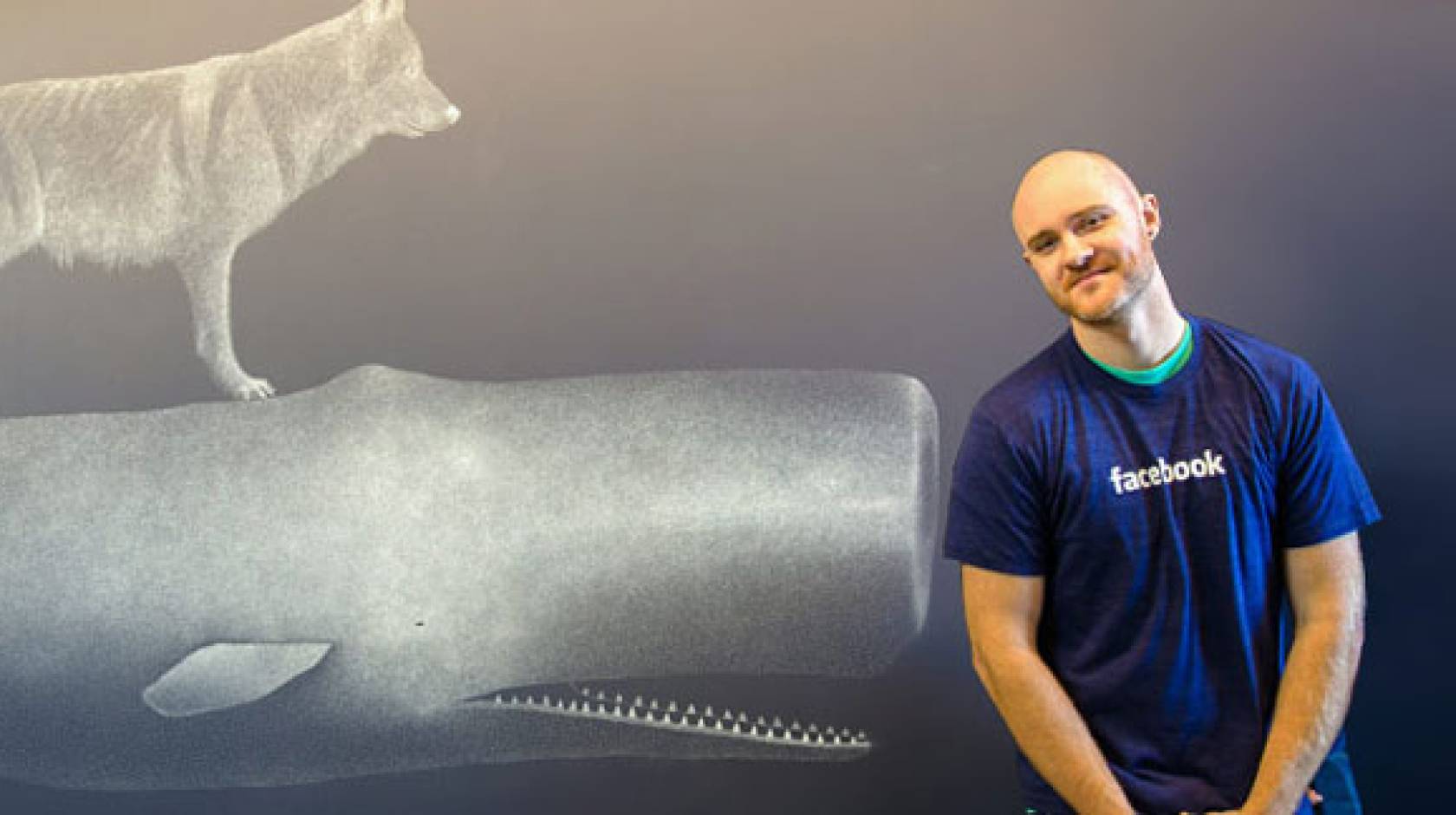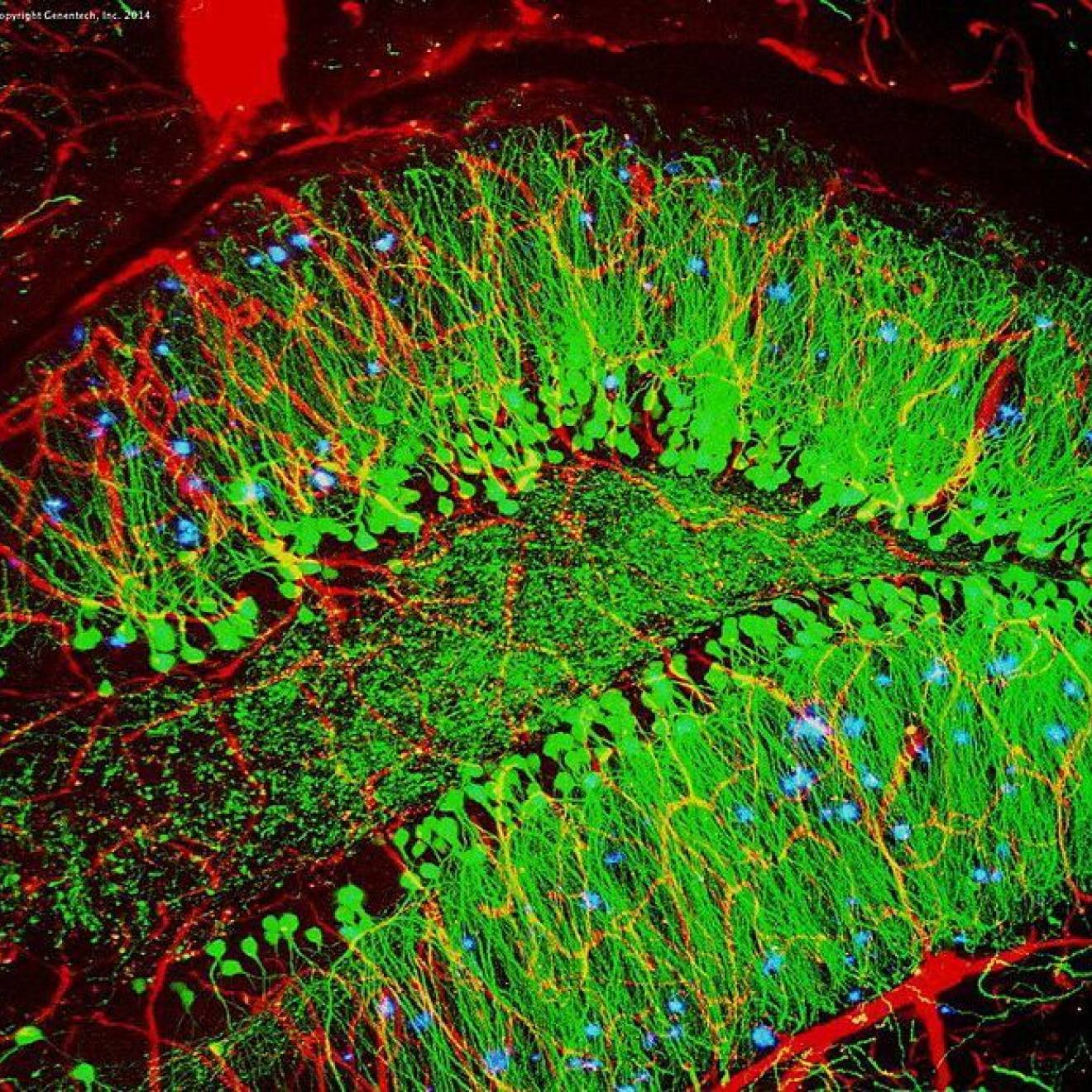Jennifer McNulty, UC Santa Cruz

Artie Konrad has always wanted to make a positive contribution to the world.
After college, he taught stress reduction and meditation to K-12 students in the Mission District of San Francisco. He founded a tutoring company to build students' confidence by supporting them academically. And as a Ph.D. student in psychology at UC Santa Cruz, he developed phone apps that prompt users to reflect on past experiences, because reminiscing reconnects people with positive emotions.

Credit: Carolyn Lagattuta/UC Santa Cruz
"I've always been this way," said Konrad. "It's just how I'm built. I have to be doing something that's having an impact on social good and well-being."
Now Konrad has found his dream job at Facebook, where he joined the "social good" team just after earning his doctorate last winter. This is the group that developed Safety Check so Facebook users can notify loved ones in the event of an emergency. They also created the "Donate" button to facilitate charitable giving. With 1.5 billion users worldwide, Facebook is a powerful force: The Facebook community donated more to survivors of the earthquake in Nepal than did the U.S. government.
Today, Konrad is a user experience researcher on Facebook's On This Day project — the feature that populates users' feeds with photos, posts, and status updates from the past.
"It's a positive experience to connect with the past, and people are reporting to us how much they enjoy seeing their memories," said Konrad.
Pioneering 'Technology-Mediated Reflection'
Konrad credits his advisor, psychology professor Steve Whittaker, with inspiring him.
"When I started at UC Santa Cruz, I saw technology as the opposite of well-being, but as I got into it, I saw the advantages and the potential and focused my research on reminiscence and technology," he said. "Steve is a rock star of Human-Computer Interaction (HCI). I got more than I ever expected to get out of my education, largely because of Steve. He's so accomplished in the field."
Whittaker says Silicon Valley companies like Facebook and Google are hiring UC Santa Cruz psychology graduates like Konrad because of what they understand about human motivation and human behavior.
Konrad started working with the On This Day team as an intern and had a job offer before he graduated. "It's amazing how perfect the fit is," he marveled. "I’ve spent years researching technologies just like On This Day, so to come in with that background helped me connect new dots for the team. They have been welcoming, and I feel like I’ve found a home.”
The use of technology to support reminiscence, which Konrad calls Technology-Mediated Reflection (or TMR), is in its infancy compared to technologies that support behavior change. Just think about the ubiquitous Fitbit and the plethora of apps to help us manage our time better, control our spending, and organize our lives.
For someone like Konrad, the opportunity to research the efficacy of TMR on a scale as vast as Facebook is phenomenal. "The studies I did as a grad student involved maybe 400 people whose well-being was improved," he said. "At Facebook, we have the ability to reach a much higher number of people."
'I want to understand myself'
Konrad is quick to note that the company's goal isn't to measure or manipulate well-being, or even to increase it. It's simply to connect users with memories in hopes of giving them a positive experience. "We have the tool that offers access, and we hope there's some delight as we connect you to your past," he said.
Introduced just over a year ago, On This Day is a new but growing product. "The saying at Facebook is 'The journey is only 1 percent finished'," noted Konrad. "On This Day has so much potential and I’m excited about what’s in store." Indeed, driven by algorithms, the feature early on connected some users with memories they would just as soon forget; Facebook has since improved its algorithms and added controls so users can filter out what they don't want to see.
As a front-line researcher, Konrad said product managers and stakeholders come to him with questions. His job is to figure out how to get answers and then communicate findings to a diverse group with a wide range of professional expertise. He relies on interviews and surveys to gather information about the user experience — how people navigate and feel about the site.
"Many researchers specialize in either quantitative or qualitative methods," said Konrad. "I'm a mixed-methods researcher. I have skills across the spectrum, and I employ them all. I like to ask big foundational questions, as well as targeted questions that have more immediate impact. I love doing multi-stage research and in-depth interviews for the opportunity to dive deep."
Konrad, a San Francisco native who studied cognitive science at UC Berkeley as an undergraduate, completed his graduate work in less than five years. Interest in technology among psychology students increased notably even during that short span, he said, and faculty are increasingly supportive of students like him who want to work in industry.
"Well-being is the thread that runs through my research. I have other interests — I want to understand myself — but doing this research, we're going to learn something about us," said Konrad. "Facebook has the potential to answer some really important questions. The work is very gratifying. We're having an impact and having a positive effect on people."

